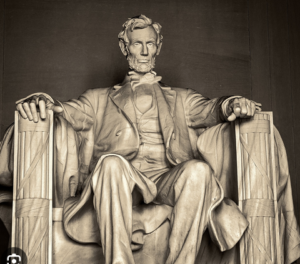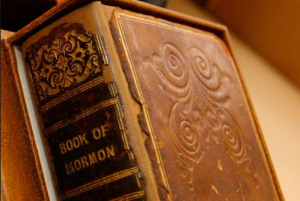 There is a hypothesis that Abraham Lincoln read the Book of Mormon, which influenced him to end slavery.
There is a hypothesis that Abraham Lincoln read the Book of Mormon, which influenced him to end slavery.
Timothy Ballard records in his book, The Lincoln Hypothesis, (unproven supposition) that this may well be the case. However, Tim’s research shows that after reading the Book of Mormon, Lincoln’s life was changed in a significant way. Chapter 8 tells the core of his hypothesis (pp 106-124). I highly suggest you read his entire book.
I add more to the validity of his theory in this blog article and tie it to our day and time in an essential way. We will see that Lincoln’s message to Americans back then is much more important to Americans now.
One can think of a Hebrew Midrash, in simple terms, is ancient commentary or added details on Hebrew Scriptures. I learned from my two Jewish convert friends, Rob Kay and David Doane, about the prevalence and importance of Hebrew Midrash in the Book of Mormon. We will see that this amplification was very important as Lincoln read the Book of Mormon; it shows up in his language and insights.
Nephi’s Midrash in the Book of Mormon added details on Isaiah chapters 2-14 and beautifully explains that the USA is the promised land and a covenant land spoken of in the Book of Mormon—Lincoln’s land, his war, and his people, who he was called to preside over in this most war-torn and tumultuous time. The Book of Mormon message touched Lincoln’s heart to the core, as we will see because of the amplification of these Isaiah scriptures in the Book of Mormon.
Lincoln Received Inspiration
We think about how the Lord helped Lincoln with inspiration in all he accomplished, and we see the impact the Book of Mormon had on him in his language and in his accomplishments. His second inaugural address was totally inspired. Forty-two days later he would die, as a monumental martyr to the cause of freedom as our first assassinated President—and only six days after General Lee had surrendered to General Grant at the Appomattox Court House in Virginia. Earlier, he told his wife, Mary, he was under orders from the Lord. We will see the amazing story of why he would say that to her.
After taking the oath of office, he reached down where his hand was on a special scripture in the Bible that he had chosen and kissed it as recorded by Chief Justice Salmon Chase, who administered the oath. We will see the great significance of that scripture and the events leading up to why this was significant. The scripture he had kissed was Isaiah 5:24-26. Using Hebrew Midrash, Nephi profoundly explains many events that would resonate with Lincoln’s heart, as he wrestled with the great burden he carried as President of this war-torn country, but knowing of the glorious future of the United States of America.
After taking the oath of office, he gave his inspired second inaugural address. The Lord let everyone know how pleased He was with what Lincoln would be sharing, as a “sunburst” broke through the clouds, as Lincoln began to deliver his message. It had been a stormy day until that monumental moment. Lincoln solemnly and reverently declared in the bright sunshine,
The Almighty has his own purposes… Fondly do we hope—fervently do we pray—that this mighty scourge of war may speedily pass away… Yet, if God wills that it continue until all the wealth piled by the bondman’s two hundred and fifty years of unrequited toil shall be sunk, and until every drop of blood drawn with the lash shall be paid by another drawn with the sword, as was said three thousand years ago, so still it must be said, ‘The judgments of the Lord are true and righteous altogether.’
We have pictures of General George Washington praying at Valley Forge. It seems we need a new view of Lincoln praying with the Book of Mormon in front of him. The Midrash explanation of these Isaiah scriptures would have given him inspiration and clarity, as these scriptures both describe the Civil War—his war—and the hopeful future, as America is unitedly brought back to the “the law of the Lord”—the USA Constitution and Declaration of Independence, which needed his “Emancipation Proclamation” to get rid of the hypocrisy that slavery encroached against the statement, “We hold these Truths to be self-evident, that all Men are created equal, that they are endowed by their Creator with certain unalienable Rights, that among these are Life, Liberty, and the Pursuit of Happiness—-That to secure these Rights, Governments are instituted among Men, deriving their just Powers from the Consent of the Governed…”
Lincoln was an avid reader. Tim Ballard was able to go to the Library of Congress and in the rare book section, study the Book of Mormon that Lincoln had checked out, which had such an enormous impact on Lincoln’s life. Tim learned that Lincoln was prone to turn down (dog-ear) the corner of a page in a book he was reading. Tim noted that 24 pages had been turned down in this copy and the one tied to Isaiah 5:24-26 had noticeably been turned down three times, which is the one in the Bible Lincoln put his hand on.
Continue reading Did Abraham Lincoln Read The Book of Mormon?
